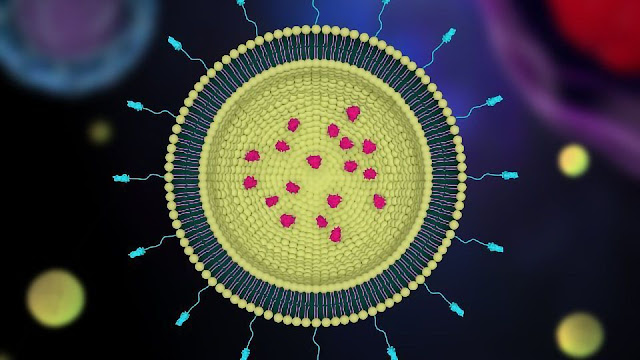Nanoparticles for Drug Delivery in Prostate Cancer Treatment
Nanoparticles have emerged as a promising technology in drug delivery systems, particularly in the context of treating complex diseases like prostate cancer. Their unique properties, including small size, large surface area, and the ability to be engineered for specific targeting, make them an ideal candidate for enhancing therapeutic efficacy while minimizing side effects.
Nanoparticles are materials that range in size from 1 to 100 nanometers. At this scale, materials exhibit novel physical and chemical properties compared to their bulk counterparts. Researchers have been exploring various types of nanoparticles—such as liposomes, polymeric nanoparticles, and metallic nanoparticles—for their potential to encapsulate drugs and deliver them directly to tumors.A study published in “The Journal of Controlled Release” demonstrated that nanoparticles modified with prostate-specific membrane antigen (PSMA) could effectively target prostate cancer cells. The research highlights how this targeting capability allows for the delivery of higher concentrations of drugs directly to cancer cells, thereby reducing the toxicity associated with conventional methods.
Researchers at the University of California, San Francisco, have explored the use of gold nanoparticles for combination therapy. Their findings indicated that when combined with chemotherapy agents, gold nanoparticles facilitated a synergistic effect that enhanced cell death in prostate cancer in vitro models. This innovative approach opens avenues for more effective treatment regimens.
A groundbreaking study from Harvard Medical School explored the potential of polymeric nanoparticles for gene therapy in prostate cancer. The researchers engineered nanoparticles capable of carrying small interfering RNA (siRNA) directly to tumor cells. This method significantly inhibited the expression of cancer-promoting genes, showcasing a new frontier in targeted genetic therapy.
Many scientists believe that the real promise of nanoparticles lies in their ability to overcome the limitations of traditional cancer therapies. Dr. Sarah Thompson, an oncologist at Johns Hopkins University, states, "Nanoparticles represent a transformative strategy in cancer treatment. Their ability to specifically deliver therapeutic agents can significantly increase the effectiveness of treatment while lowering the associated side effects."However, some researchers urge caution regarding the clinical translation of nanoparticle-based therapies. Dr. Michael Chen, a pharmaceutical scientist, highlights, "While the preclinical results are promising, we must ensure that these nanoparticles are safe and effective in humans. Regulatory pathways must evolve to keep pace with this technology."
Ongoing clinical trials are examining various nanoparticle formulations in prostate cancer treatment. One notable trial is testing a nanoparticle-based formulation of cabazitaxel, a chemotherapy drug. Early results suggest improved patient responses and fewer side effects compared to traditional administration routes.Moreover, the future of nanoparticles in drug delivery is not limited to prostate cancer alone. Researchers are also investigating their applications in various other cancers and diseases, thereby expanding their therapeutic scope.
The landscape of prostate cancer treatment has seen significant advancements in recent years, particularly with the advent of nanoparticle technology for drug delivery. Various clinics have emerged as pioneers in this innovative approach, utilizing nanoparticles to enhance the efficacy and specificity of therapeutic agents in combating prostate cancer. Below, we explore the benefits and challenges of this method, along with a review of notable clinics leading the way.
Johns Hopkins is conducting groundbreaking studies on gold nanoparticles combined with existing chemotherapy agents. Their innovative approach has demonstrated enhanced tumor targeting and improved therapeutic efficacy along with significant reductions in side effects.
Cleveland Clinic is investigating liposomal nanoparticles for prostate cancer therapy. Their studies emphasize the potential of these carriers for enhanced delivery of docetaxel, a common chemotherapy drug, leading to better response rates in clinical settings.
Memorial Sloan Kettering Cancer Center known for its pioneering cancer research, this institution is exploring the use of silica-based nanoparticles for tumor imaging and drug delivery. Their extensive trials are examining the effectiveness of these nanoparticles in improving the outcomes of localized prostate cancer treatments.
Clinics leveraging nanoparticle technology for drug delivery in prostate cancer treatment are making remarkable strides in the field. With their ability to enhance targeting, improve drug solubility, and enable controlled release, nanoparticles represent a significant advancement in oncological therapeutics. As research progresses and clinical practices evolve, the integration of these technologies holds great promise for improving the outcomes in prostate cancer treatment.
Continued collaboration between research institutions and clinical practices will likely pave the way for even more effective treatments, ultimately aiming to improve the lives of patients battling this disease.
Conclusion: Nanoparticles present a revolutionary approach to drug delivery, particularly in the realm of prostate cancer treatment. With ongoing research, positive preclinical findings, and a growing body of clinical evidence, nanoparticles may soon play a pivotal role in redefining cancer therapy strategies. As scientists continue to navigate the challenges of safety and efficacy, the potential for nanoparticles to transform the landscape of cancer treatment remains incredibly promising.






